#ronan vibert
Text
I don't like The Scarlet Pimpernel 1999 for many reasons, but genuinely? Ronan Vibert's Robespierre is like shockingly not awful?
I mean, they still act like he's this evil tyrant - but! They get the mannerisms right! The moment it episode 3 when Marguerite is talking about her marriage and he just gets up to look over some Important Work mid-conversation! The way he's always glancing off rather than maintaining eye contact! His mouth twitch! Being really quiet and unassuming rather than some cackling menace!
He genuinely feels accidentally autistic-coded in a way that's more true to the actual guy than anything from Orczy's books, where he's just some wicked dictator cutting off heads for the sake of it.
#robespierre#frev media#tsp 1999#might just clip together all the robespierre bits honestly#for my own ease of access#ronan vibert
9 notes
·
View notes
Text
"THE BUCCANEERS" (1995) Review
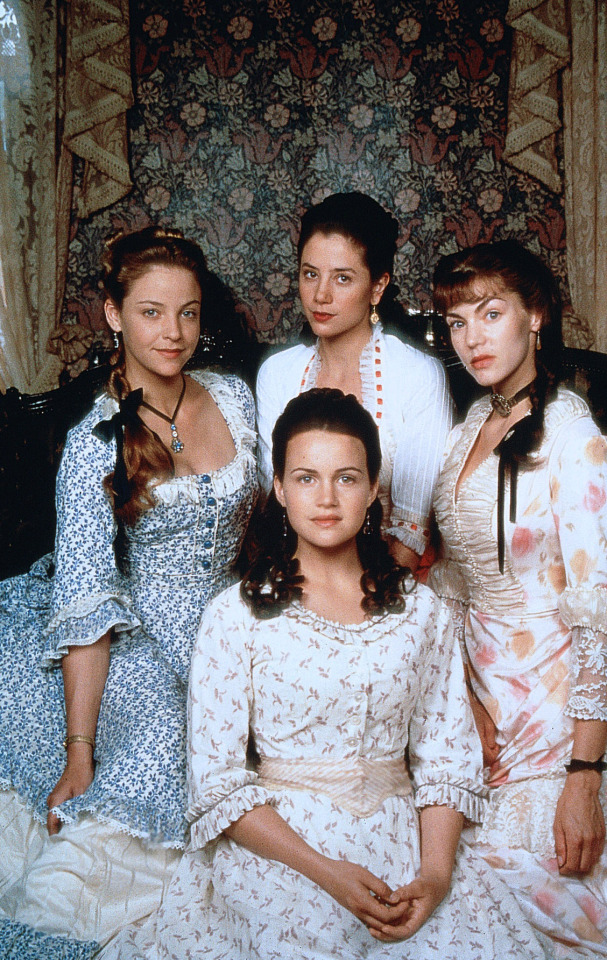
"THE BUCCANEERS" (1995) Review
Years ago, I had anticipating watching for the first time, "THE BUCCANEERS", the 1995 television adaptation of Edith Wharton’s last novel. After all, I have been a major fan of "THE AGE OF INNOCENCE", Martin Scorcese’s 1993 adaptation of Wharton’s award-winning 1920 novel for years. But my eager anticipating nearly ebbed away, when I discovered that "THE BUCCANEERS" only managed to rouse a lukewarm reception from many television critics.
The five-part miniseries turned out to be an unusual production from the BBC. One, it was based upon a novel written by an American author – namely Edith Wharton. There have been other British television productions based upon the literary works of an American, but they are very rare. Another interesting aspect of Wharton’s "The Age of Innocence" is that the author did not finish it, due to her death at the age of 75. Fifty-six years later, Wharton scholar Marion Mainwaring finished the novel, which was published by Viking. Around the same time, the BBC hired screenwriter Maggie Wadey to adapt and finish the novel for the television adaptation. As a result the novel has two slightly different endings. Another aspect of this miniseries that struck me as unusual was that instead of hiring British actresses to portray four of the five leads, the BBC hired four Amercian actresses – Carla Gugino, Mira Sorvino, Alison Elliott and Rya Kihlstedt.
The plotline for "THE BUCCANEERS" is very simple. The story begins in 1873 Newport, Rhode Island; in which two sisters of a noveau riche businessman and their two friends are introduced – Virginia "Ginny" and Annabel "Nan" St. George, Conchita "Connie" Closson and Elizabeth "Lizzy" Elmsworth. Whereas the Brazilian born Conchita manages to snare Lord Richard Marabel, the dissolute second son of the Marquess of Brightlingsea, the other three girls struggle to find a place amongst the members of old New York society. When a prank committed by Ginny and Lizzy backfires, Nan’s English governess Laura Testvalley proposes to Mrs. St. George that Ginny and Nan have a London season amongst the upper-class British. She argues that their acceptance by the British high society would assure them a place amongst the upper-class New Yorkers. Due to their friendship with the vibrant Conchita, Virginia and Annabel are introduced to Lord Richard’s family – the impoverished Brightlingseas and their neighbors, the equally impoverished Sir Helmsey Thwaite and his son Guy. As they get settled to conquer British society, Ginny and Nan are surprised by the arrival of Lizzy, who has arrived in Britain for her own season.
Although the girls’ original purpose for visiting Britain was to enjoy a London season, a friend of Laura Testvalley has other plans for them. Thirty years earlier, the American born Jackie March had been engaged to a British aristocrat – namely the very young Lord Brightlingsea, who abandoned her at the altar. Miss March remained in Britain and became something of a sponsor/matchmaker for young society girls. It was Miss March who recommended that the visiting Americans rent a villa owned by one of her former sponsors, Lady Idina Hutton. She also recommended that the girls do more than just enjoy a London season in order to impress old New York society. She recommended that they consider marrying into upper-class British society. Miss March’s plans eventually come to fruition:
*Virginia or namely her father’s wealth attracted the attention of Lady Idina Hutton’s lover and Lord Richard’s older brother, Lord Seadown.
*Lizzy ended up marrying a self-made aspiring politician named Hector Robinson
*Annabel fell in love with Guy Thwaite, but ended up marrying the very wealthy Julian Folyat, Duke of Trevennick; when Guy left Britain to find his fortune in South America.
As I had stated earlier, most critics were not initially kind to "THE BUCCANEERS". Most British critics dismissed it as a costumed soap opera of the second-rate kind, with an ending that had been "Hollywoodized" (happy ending). These same critics also accused the miniseries of mocking the British aristocracy. The American critics, at least those who considered themselves Wharton purists, accused the miniseries’ screenwriter, Maggie Waddey, of changing the elements of the author’s story by including topics such as marital rape and homosexuality. Personally, I found all of these arguments irrelevant. Most dramas about personal lives – whether first-rate or not – tend to possess soap-operish elements. This hostility toward soap operas has always struck me as infantile and irrelevant. And why are all Hollywood productions guilty of having a happy ending, when that has not been the case? Other literary works and their adaptations have mocked the British aristocracy. Why was there such a big hullabaloo over how the aristocracy was portrayed in this particular story? As for the additions of marital rape and homosexuality, these elements did no harm to the story, as far as I am concerned. And I must admit that I have become increasingly weary of demands that all movie or television adaptations should be completely faithful to their literary source. Such demands strike me as impractical.
My complaints about "THE BUCCANEERS" are very few. In fact, I only have two. The first time I ever saw actress Gwen Humble on the television screen was in a miniseries called "THE REBELS", an adaptation of a John Jakes novel. Although I had no problems with her performance in that particular production, I must admit that I had a problem with her performance as Virginia and Annabel’s mother, Mrs. St. George. I understand that Mrs. St. George was supposed to be a shallow and somewhat silly woman. But I feel that Humble went a little too far in conveying those certain traits. Her performance struck me as exaggerated and a little amateurish. Another problem I had with "THE BUCCANEERS" is a rather minor one. It has to do with Virginia’s husband, Lord Seadown. His father is a marquess – which is ranked somewhere between a duke and an earl (count). As the eldest son, he is entitled to a courtesy title. But what was Seadown’s courtesy title? His younger brother was called Lord Richard Marable, which is correct for the younger son of a marquess. The courtesy title for the eldest son of a marquess is usually an earldom – namely Earl of Something. Was Seadown’s name a courtesy title - Earl of Seadown? Or was he supposed to be regarded as Lord Seadown Marable? If the latter, what was the courtesy title he used? I found it all slightly confusing.
However, "THE BUCCANEERS" has been one of my all time favorite miniseries, ever since I first saw it. And there is so much about it that has made it such a favorite of mine. One, producer-director Philip hired a production crew that did justice to Wharton’s story. The miniseries featured some elegant locations that served as the story’s various settings. Some of these locations included Castle Howard, Burghley House and Newport, Rhode Island. I also enjoyed Remi Adefarasin’s photography. It had a deep and rich color that did justice to a story filled with emotions and passion. Colin Towns provided an elegant and entertaining score that remained memorable for me, since the first time I heard it years ago. But it was Rosalind Ebbutt’s costumes that really blew my mind. She provided exquisitely outfits that were beautiful and elegant – especially those for the lead actresses. More importantly, her costumes not only reflected the fashions wore by the American and British upper-classes during the 1870s, they also reflected the change in the main characters’ status and in women’s fashion throughout the decade, as the following photographs show:
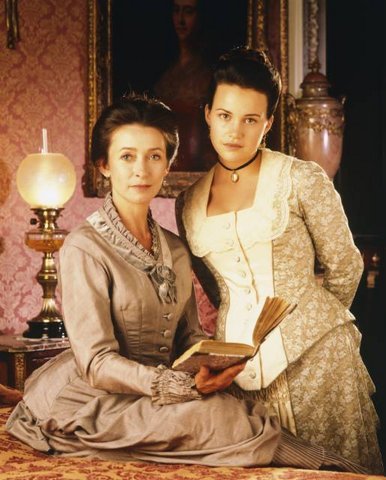
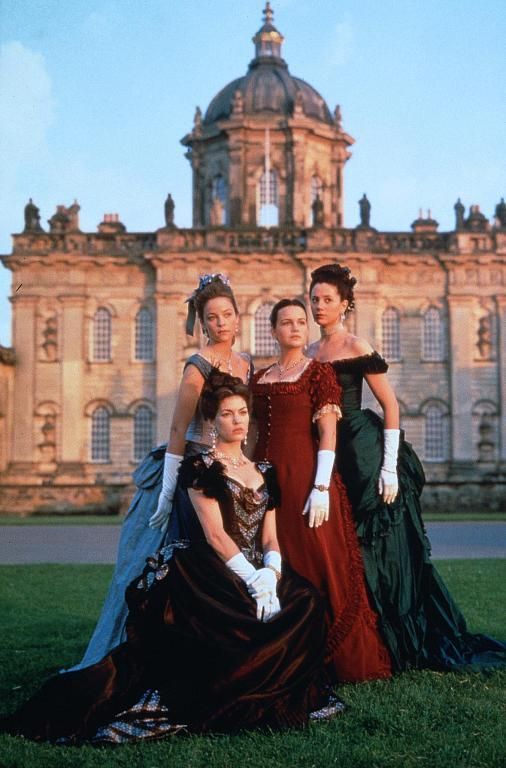
Another one of the major virtues of "THE BUCCANEERS" turned out to be its cast. Wharton’s novel is filled with interesting characters. And Saville and his casting director did an excellent job in finding the right actor/actress for the right role. Aside from Gwen Humble’s portrayal of Mrs. St. George, there were so many first-rate performances in the miniseries that it would take me another article just to describe them. But the supporting performances that stood out for me came from the likes of Sheila Hancock, whose portrayal of the Dowager Duchess of Trevenick struck me as an expert mixture of cool haughtiness, sharp wisdom and long suffering; Michael Kitchen, who skillfully conveyed both the charming and shallow nature of Sir Helmsley Thwaite; Jenny Agutter, who was excellent as Lady Idina Hatton, Lord Seadown’s insecure and tragic mistress; Dinsdale Landen and Rosemary Leach, who both portrayed the Marquess and Marchioness of Brightlingsea with a mixture of class haughtiness, charm and great humor; Peter M. Goetz, who seemed to personify the self-made 19th century American businessman; and Connie Booth, who gave one of her best performances as the ambitious and sharp-minded Jackie March.
Richard Huw gave a humorous, yet intelligent performance as Hector Robinson, the ambitious young Member of Parliament who ends up winning Lizzy Elmsworth’s hand. And Mark Tandy was pretty solid as Lord Brightlingsea’s heir, the mercenary Lord Seadown who marries Virginia for Colonel St. George’s money. I was very impressed by Ronan Vibert’s portrayal of the dissolute Lord Richard Marabel, Conchita’s husband and Lord Brightlingsea’s younger son. But the two male performances that really impressed me came from Greg Wise and James Frain. The latter portrayed the haughty Julian Duke of Trevenick, who manages to win the hand Annabel St. George (much to the surprise of her governess), before alienating her with his lack of skills as a husband. Frain could have easily portrayed Julian as a one-note villain, especially when one considers the act of marital rape that his character committed against his wife in Episode Three. Being the skillful actor that he is, Frain conveyed all facets of Julian’s personality – both the good and the bad. And his assertion near the end of Episode Four that he is "not a monster" may have been one of Frain’s finest moments on screen. Greg Wise probably gave one of what I consider to be three of his best career performances in his portrayal of Guy Thwaite, Sir Helmsley’s only son. His Guy could have been one of your typical handsome, romantic heroes. But Wise did an excellent job in revealing how Guy’s insecurities regarding his lack of funds led him to lose Annabel to Julian. And he also conveyed how in the throes of love, Guy could be a slightly selfish man with no thought to how his "friendship" with Annabel might affect her social standing. Thanks to Wise’s performance, his Guy Thwaite proved to be equally complex.
We finally come to our five leads in the story – the four American heiresses and Annabel St. George’s English governess, Laura Testvalley. I have noticed that whenever someone brings up Cheri Lunghi, he or she inevitable brings up her role in "THE BUCCANEERS", the Anglo-Italian governess Miss Testvalley. I certainly cannot blame them. Lunghi proved to be the glue that held the story together, skillfully serving as its eyes and narrator at the beginning of each episode. Rya Kihlstedt gave a charming and solid performance as the blunt and level-headed Lizzy Elmsworth, who seemed more impressed by Hector Robinson’s ambitions than any aristocrat. She and Richard Huw managed to create a very credible screen presence. Alison Elliott’s Virginia St. George proved to be one of the most complicated characters in the story. Thanks to the actress’ excellent performance, she conveyed Virginia’s haughtiness and obsession with being connected to an aristocratic family; and at the same time, garnered sympathy by expressing the character’s love for her husband and disappointment upon discovering that he had only married her for money. And less than a year before she won her Academy Award, Mira Sorvino proved just how first-rate she could be as an actress in her portrayal of the Brazilian-born Conchita Closson. Her Conchita was a delicious and complicated minx torn by her desire for the luxurious and glamorous lifestyle of the British aristocracy and her contempt for what she deemed as their cold personalities. If Cheri Lunghi’s Laura Testvalley was the story’s eyes and narrator, Carla Gugino’s Annabel St. George aka the Duchess of Trevenick proved to be the heart and soul of "THE BUCCANEERS". Thanks to Gugino’s superb performance, the actress literally transformed Nan from the childish and naïve sixteen year-old girl, to the bewildered nineteen year-old bride and finally to the weary twenty-one year-old wife, disappointed by a failed marriage and in love with another man. There are times that I wondered if any other actress could have accomplished what she did. It seemed a pity that none of the major television and critics awards organizations never acknowledged her performance with a nomination.
Many critics have heaped a great deal of scorn upon Maggie Wadey’s adaptation of Wharton’s novel. Frankly, I believe this scorn was undeserved. I may not have been that impressed by her other works, but I honestly believe that "THE BUCCANEERS" was her masterpiece by far. Many accused her of failing to adapt Wharton’s "spirit" or "style" by including marital rape and homosexuality into the story. Since both topics where added without any tasteless sensationalism, I had no problems with these additions. And Wadey also made sure to give the story’s happy ending something of a bittersweet edge. Despite leaving Julian for the man she loved, Guy Thwaite, Annabel found herself ostracized by society and especially by her sister Virginia – as was proven at the Marquess of Brightlingsea’s funeral. Annabel and Guy’s elopement also left the latter disinherited by his father, Sir Helmsley. And her assistance in the elopement left Laura Testvalley rejected by Sir Helmsley and unemployed. So much for the "happy ending". Because the story revolved around four American heiresses marrying into the British upper-classes, "THE BUCCANEERS" also proved to be an interesting study in culture clash between two Western nations in the mid-to-late nineteenth century. But in all of the articles I have read about the miniseries, I find it surprising that no one has bothered to noticed that the topic of the continuing decline of the British aristocracy was also mentioned . . . more than once. It almost became a secondary theme. The Brightlingseas’ interest in the St. George family certainly seemed an indication that they were more willing to marry money – regardless from where it came – rather than find a way to earn it. This seemed like a far cry from Guy Thwaite, who preferred to create his own wealth with two years in South America, rather than marry it. And the character of the Marquess of Brightlingsea literally became a symbol of the aristocracy’s decline in scenes like a heated conversation between him and Hector Robinson; and a speech by Guy Thwaite to the House of Commons during a montage that featured of his death.
Now that I think about it, why should I care what others feel about "THE BUCCANEERS"? Every time I watch it, I always fall in love with the miniseries over and over again. Maggie Wadey wrote an excellent adaptation of Wharton’s novel – probably her best work or masterpiece, as far as I am concerned. Led by the likes of Carla Gugino, Cheri Lunghi, Greg Wise and James Frain, the cast proved to be first-rate. And Philip Saville did justice to both the cast and Wadey’s screenplay in his direction of the miniseries.
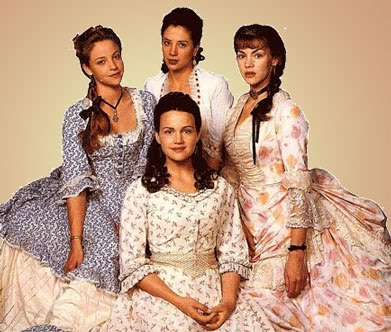
#edith wharton#edith wharton's the buccaneers#the buccaneers#the buccaneers 1995#maggie wadey#philip saville#carla gugino#cheri lunghi#greg wise#james frain#alison elliott#mira sorvino#rya kihlstedt#mark tandy#ronan vibert#richard huw#dinsdale landen#rosemary leach#gwen humble#peter michael goetz#conchata ferrell#michael kitchen#elizabeth ashley#james rebhorn#sheila hancock#jenny agutter#gilded age#victorian age#emily hamilton#connie booth
7 notes
·
View notes
Text

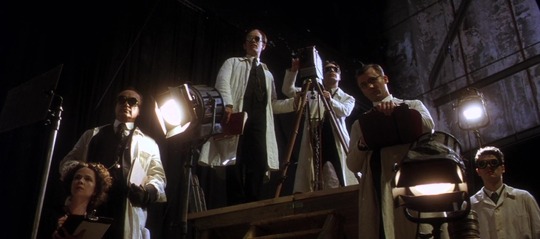
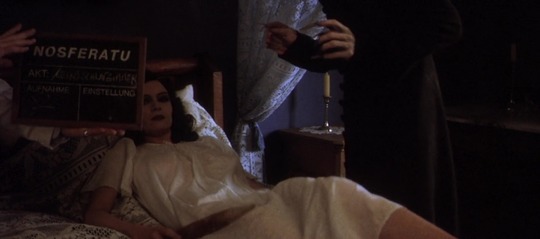
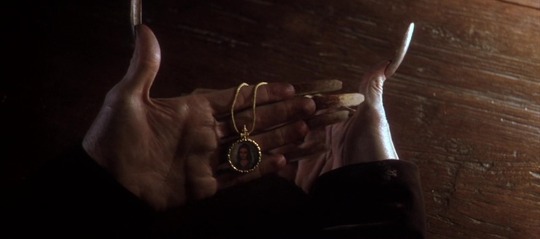

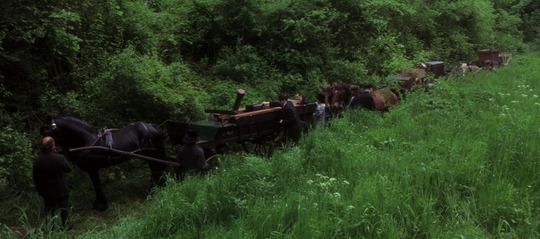




Shadow of the Vampire (2000)
Director - E. Elias Merhige, Cinematography - Lou Bogue
"Our battle, our struggle, is to create art. Our weapon is the moving picture. Because we have the moving picture, our paintings will grow and recede; our poetry will be shadows that lengthen and conceal; our light will play across living faces that laugh and agonize; and our music will linger and finally overwhelm, because it will have a context as certain as the grave. We are scientists engaged in the creation of memory... but our memory will neither blur nor fade. "
#scenesandscreens#Shadow of the Vampire#e. elias merhige#Lou Bogue#john malkovich#willem dafoe#cary elwes#John Aden Gillet#eddie izzard#udo kier#catherine mccormack#ronan vibert#Nicholas Elliott#Sophie Langevin#Myriam Muller#max schreck#Frederich Wilhelm Murnau#nosferatu
63 notes
·
View notes
Photo
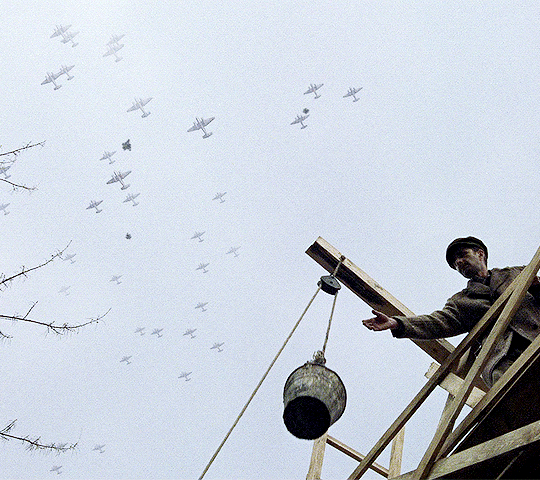
THE PIANIST 2002
If you prick us, do we not bleed? It you tickle us, do we not laugh? If you poison us, do we not die? And if you wrong us, shall we not revenge?
#the pianist#2002#adrien brody#thomas kretschmann#frank finlay#maureen lipman#emilia fox#ed stoppard#julia rayner#jessica kate meyer#ronan vibert#ruth platt#andrew tiernan#michal zebrowski#roy smiles#richard ridings
20 notes
·
View notes
Text
RIP Ronan Vibert
Just found out that actor Ronan Vibert has died (far too young!) He portrayed Robespierre in The Scarlet Pimpernel

43 notes
·
View notes
Text
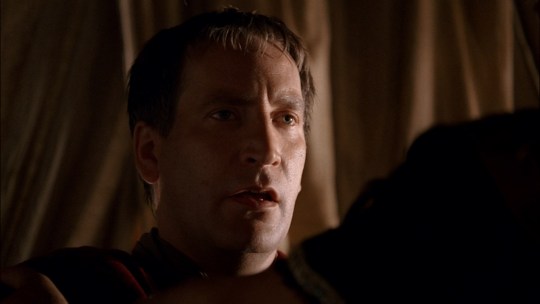
This guy brings big Arnold Rimmer energy to the party
2 notes
·
View notes
Text
Shadow of the Vampire (2000)

With Shadow of the Vampire, writer Steven Katz and director E. Elias Merhige have caught lightning in a bottle. It isn’t that the film couldn’t have been made at any other point - though a different decade and country probably wouldn’t have given them access to Willem Dafoe, so good here. It’s that a fictional account of the making of any other film besides F. W. Murnau’s classic Nosferatu just wouldn't work. The way "Shadow of the Vampire" manages to be both funny and frightening and then do it in ways you don’t expect is kind of brilliant.
In 1921, German director F. W. Murnau (John Malkovich) announces that an obscure German theater performer will play the vampire in “Nosferatu”, his unauthorized adaptation of Bram Stoker’s Dracula. To fully immerse himself in the role, Max Schreck (Dafoe) will only appear in makeup, at nighttime and will never break character. Strange incidents on the set lead the crew to suspect that Murnau has employed a real vampire to make the most authentic film possible.
If you’ve seen Nosferatu, you know how appropriate this fictional scenario is. Murnau’s vampire is a monster like no other. The film has dream-like atmosphere. It isn’t influenced by the much better known 1931 adaptation of Dracula featuring Bela Lugosi, so it interprets the idea of an immortal bloodsucker in a unique way. Murnau didn’t obtain filming rights from Stoker’s widow before production began and all prints were nearly destroyed once she found out. Why didn’t he wait until he had the rights, or just make a different story? Then there’s the picture’s age. Made in 1921, it comes from that bridge between the old world and the new. Movies were being made, but everyone was making it up as they went along, which led to strange choices from everyone involved. Nosferatu is an oddity that’s hypnotic and I can think of no better film whose origin could be shrouded in a sinister mystery.
We’ve got a dynamite premise and the perfect film to apply it to. The final, critical piece comes in the form of the actors. Dafoe is so good here. He’s weird enough that you and the film crew believe he might be an actual vampire. He seems filled with perpetual sadness: a monster, but a pathetic monster, a creature who’s lived on for so long it no longer has a place in a world where you can not only capture an image of the sun and look at it anytime, but film an entire sunrise and project it on a screen to tell a fictional story.
Of course Schreck isn’t actually a vampire because vampires aren’t real, right? And even if vampires were real, what kind of insane film director would hire one? How would you pay them? In blood? How would you coach a vampire to pretend to drink from your female lead (Catherine McCormack as Greta Schroeder)? Unless you shot the film in a way that meant the scene where she is attacked is the last one before production wraps…
There are movies who get better the longer you sit with them. Nosferatu and Shadow of the Vampire are two examples. The more I talk about Shadow of the Vampire, the more I like it. There are so many details here to be considered, though “details” feel like the wrong word. It implies little hidden things when, in fact, they are not hidden, they’re right there, but invisible at a first glance. This is a film I’m going to return to, both mentally, and physically. Shadow of the Vampire is a motion picture like none other and a perfect companion to a horror classic. (On DVD, April 13, 2018)

#Shadow of the Vampire#movies#films#movie reviews#film reviews#E. Elias Merhige#Steven Katz#John Malkovich#WIllem Dafoe#Cary Elwes#John Aden Gillet#eddie izzard#Udo Kier#Catherine mcCormack#Ronan Vibert#2000 movies#2000 films
8 notes
·
View notes
Text
22 dicembre … ricordiamo …
22 dicembre … ricordiamo …
#semprevivineiricordi #nomidaricordare #personaggiimportanti #perfettamentechic
2022: Ronan Vibert, Ronan David Jackson Vibert, attore britannico. Figlio di due artisti, Dilys Jackson e David Vibert, studiò alla Royal Academy of Dramatic Art. Vibert ha avuto una lunga carriera nel teatro, nella radio, nella televisione e nel cinema. Vibert è morto in un ospedale all’età di 58 anni, a seguito di una breve malattia.(n.1964)
2020: Giorgio Gucci, nipote del fondatore della…
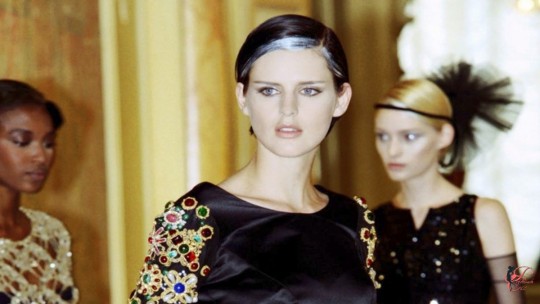
View On WordPress
#22 dicembre#22 dicembre morti#Alice Frances Taaffe#Alice Terry#Franca Sozzani#Giorgio Gucci#Harry Langdon#Joe Cocker#John Robert Cocker#Jonas Sternberg#Josef von Sternberg#Mario Amendola#Mario Natalino Concetto Amendola#Morti 22 dicembre#Morti oggi#Robert Keith#Rolland Keith Richey#Ronan David Jackson Vibert#Ronan Vibert#Salah Zulfikar#Stella Tennant#Susan Fleming#Tony Britton
1 note
·
View note
Text
Ronan Vibert//Who is Ronan Vibert
Ronan Vibert//Who is Ronan Vibert
View On WordPress
1 note
·
View note
Text
The Scarlet Pimpernel 1999 has one of the wildest portrayals of Robespierre I've ever seen bc Ronan Vibert simultaneously portrays him as Camp Supervillain, Stalin In A Powdered Wig, and Man In A Contentious On Again Off Again Relationship With One Of His Subordinates, and somehow he still manages to do it with more pathos and dignity than was afforded the guy in the books the show was based on.

#robespierre#the scarlet pimpernel 1999#the scarlet pimpernel#this is definitely a show that u watch for the villains#all of them in s1 and robespierre in s2#bc while i think the show is trying to get me to hate them i rooted for them the whole way through#especially robespierre in s2#who has a series of one-off chauvelin replacements#all of whom are disappointing#and the last of whom he has assassinated by the butler from parent trap#(not something the real guy would have done but something i was cheering for nevertheless)#anyway:#insane show not good but very funny
3 notes
·
View notes
Text
Was just reminded that I ripped my old dvd for preservation so -
https://mega.nz/folder/9yUlWDib#_2ZRNGQ8xRlEUbTAekPt5A
Series 1 of the 1999 BBC Scarlet Pimpernel be upon ye
#frev media#technically#its really bad#sad ronan vibert never got to play robespierre in a better show#thermidorian propaganda be upon ye
6 notes
·
View notes
Text
Snape’s Parents In The Movie:
Had the “Harry Potter” movies showed Snape’s parents in flashbacks, then I nominate Tilda Swinton as Eileen and Paul McCann/Ronan Vibert as Tobias.
But, if the movies ever have Tobias and Eileen in the present, then I’m stuck on who should be the actors. Maybe Harrison Ford with Geraldine Chaplin/Angelica Houston...Don’t know who else...
#Harry Potter#harry potter movies#tobias snape#eileen prince#severus snape#snape#the snape family#dream casting
11 notes
·
View notes
Photo

SAVING MR. BANKS 2013
George Banks and all he stands for will be saved. Maybe not in life, but in imagination. Because that's what we storytellers do. We restore order with imagination. We instill hope again and again and again.
#saving mr. banks#2013#emma thompson#tom hanks#colin farrell#ruth wilson#paul giamatti#bradley whitford#jason schwartzman#b. j. novak#kathy baker#melanie paxson#rachel griffiths#ronan vibert#kristopher kyer#victoria summer
6 notes
·
View notes
Link
Actor best known for his film and television roles, including Saving Mr Banks, The Snowman and the TV epic The BorgiasThe British character actor Ronan Vibert, who has died aged 58 after a brief illness, made his most impressive...
0 notes
